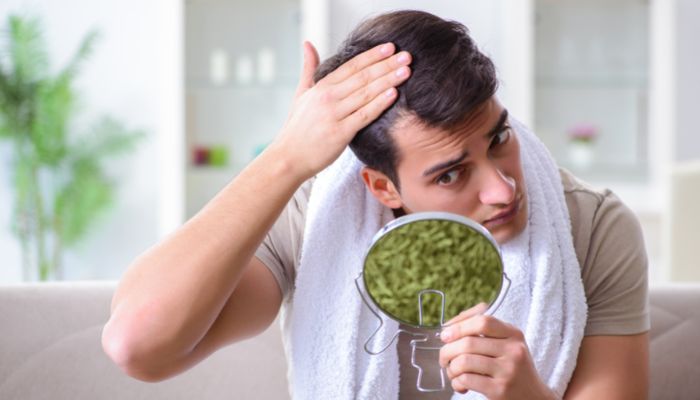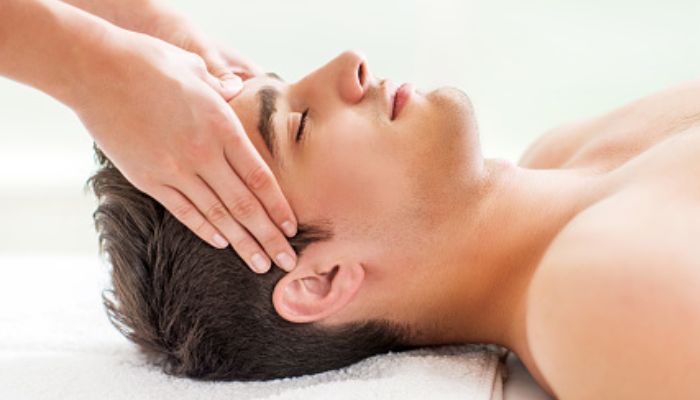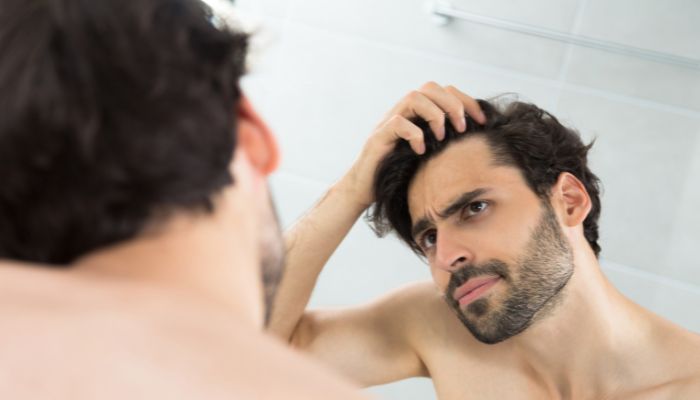Men’s hair loss in early 20s is a common problem that can be devastating. It is not a sign of aging, but it’s important to understand what might be causing your hair loss so that you can treat it. Luckily, there are many different treatments available to help you deal with it.
Table of Contents
Causes of Hair Loss in Early 20s
There are many possible causes of hair loss. The most common is hereditary hair loss, which can be caused by genes or a family history of male pattern baldness. Other causes include chemical treatments or hot tools, fungal infections that affect your scalp, extreme stress, thyroid disorders, and certain medications or medical conditions.
- Hereditary hair loss
Hereditary hair loss is a genetic condition that can cause men to lose their hair at an early age. It’s estimated that about 80% of all male pattern baldness cases are hereditary, but not all men with family histories of it will experience it themselves. The main treatments for hereditary hair loss are medication and hair transplants, but some other options exist as well.
- Chemical treatments
One of the reasons why hair loss can occur in the early 20s is a result of chemical treatments. Chemicals can damage your hair, causing breakage and dryness. If you are looking for ways to prevent this, start using products with natural ingredients. Parabens, sulfates, silicones, synthetic fragrances, phthalates, and formaldehyde are the most common hair product chemicals that you should avoid.
- Scalp fungal infections
A fungal infection can cause hair loss. People with weakened immune systems are more susceptible to fungal infections.
- Extreme stress
Stress is one of the most common causes of hair loss. However, stress and hair loss don’t have to be permanent. And if you get your stress under control, your hair might grow back.
- Certain medications and medical conditions
Certain medications can cause hair loss, including anticoagulants, antidepressants, blood pressure meds, birth control pills, chemotherapy drugs, etc.

Signs Of Hair Loss In Your Early 20s
If you’re losing hair in your early 20s, then you should talk to a doctor or dermatologist about it. Hair loss in this age range can be caused by many different things and is not always permanent. However, here are some signs of hair loss in early 20s:
- Receding hairline
- Slow hair growth
- You can’t style your hair like normal
- The scalp is prone to sunburn
- More hair on the pillow, bathroom floor, or brush
Is It Normal To Start Losing Hair In Your 20s?
If you’re in your 20s, and you’re noticing that your hair is thinning, don’t panic. It could be a normal part of male pattern baldness or temporary hair loss.
Male pattern baldness is a genetic condition that causes hair loss in males with certain genes. In most cases, the condition may begin any time after puberty.
It’s important to get a diagnosis from your doctor if you think you might have male pattern baldness; they’ll be able to refer you to an expert who can help determine whether or not this is the cause of your thinning hair.
How Do You Treat Hair Loss In Your 20s?
Check your diet. Your hair needs protein and vitamins, so if you’re not getting enough through your diet, the follicles may not be able to grow healthy hair. You should also make sure that you’re drinking plenty of water—about 8 cups a day—to keep your body hydrated and help keep the scalp healthy.
Consider looking into natural remedies for hair loss. There are many products on the market that claim to stop or reverse balding and thinning hair.
Your doctor may prescribe you some medication. Also, there are several effective hair restoration procedures available today such as PRP (platelet-rich plasma) injections, low-level laser therapy, ARTAS robotic hair transplant, and NeoGraft hair restoration system.

Best Hair Loss Prevention Tips for Men
- Follow a healthy diet
- Stress less
- Avoid harsh chemicals
- Be active
- Eat extra protein
- Use a soft brush
- Make scalp massage a habit
Summary
Hopefully, this article gave you a better understanding of what could be causing your hairline to recede and provide some options for dealing with it.
In order to figure out why you are experiencing hair loss, it is important to see a physician. Your doctor will be able to diagnose the issue, which can lead you on the right path for treatment and possible improvement. If you are looking for an experienced provider in the NJ area who specializes in treating hair loss, contact us today!




